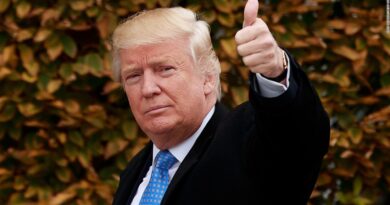Opinion | ‘Stop the Steal’ Didn’t Start With Trump

Not that this was a shock. As an accusation, “voter fraud” has been used historically to disparage the participation of Black voters and immigrants — to cast their votes as illegitimate. And Obama came to office on the strength of historic turnout among Black Americans and other nonwhite groups. To the conservative grass roots, Obama’s very presence in the White House was, on its face, evidence that fraud had overtaken American elections.
In 2011, Republicans in Alabama, Kansas, Mississippi, Pennsylvania, South Carolina, Tennessee, Texas, Virginia and Wisconsin capitalized on their legislative gains to pass new voter restrictions under the guise of election protection. Other states slashed early voting and made it more difficult to run registration drives. One 2013 study found that in states with “unencumbered Republican majorities” and large Black populations, lawmakers were especially likely to pass new voter identification laws and other restrictions on the franchise.
The 2012 election saw more of the same accusations of voter fraud. Donald Trump, who had flirted with running for president that year, called the election a “total sham and a travesty” and claimed that Obama had “lost the popular vote by a lot.” According to one survey taken after the election, 49 percent of Republican voters said they thought ACORN had stolen the election for the president.
ACORN, however, no longer existed. It closed its doors in 2010 after Congress stripped it of federal funding in the aftermath of a scandal stoked by right-wing provocateurs, whose accusations have since been discredited.
The absence of any evidence for voter fraud was not, for Republicans, evidence of its absence. Freed by the Supreme Court’s ruling in Shelby County v. Holder, which ended federal “preclearance” of election laws in much of the South, Republican lawmakers passed still more voter restrictions, each justified as necessary measures in the war against fraud.
Prominent Republican voices continued to spread the myth. “I’ve always thought in this state, close elections, presidential elections, it means you probably have to win with at least 53 percent of the vote to account for fraud,” Scott Walker, then the governor of Wisconsin, said in a 2014 interview with The Weekly Standard. “One or two points, potentially.”
Rank-and-file Republicans had already been marinating in 16 years of concentrated propaganda about the prevalence of voter fraud by the time Donald Trump claimed, in 2016, that Hillary Clinton had won the popular vote with millions of illegal ballots. If Republican voters today are quick to believe baroque conspiracy theories about fabricated and stolen votes, then it has quite a lot to do with the words and actions of a generation of mainstream Republican politicians who refused to accept that a Democratic majority was a legitimate majority.
*** This article has been archived for your research. The original version from The New York Times can be found here ***


